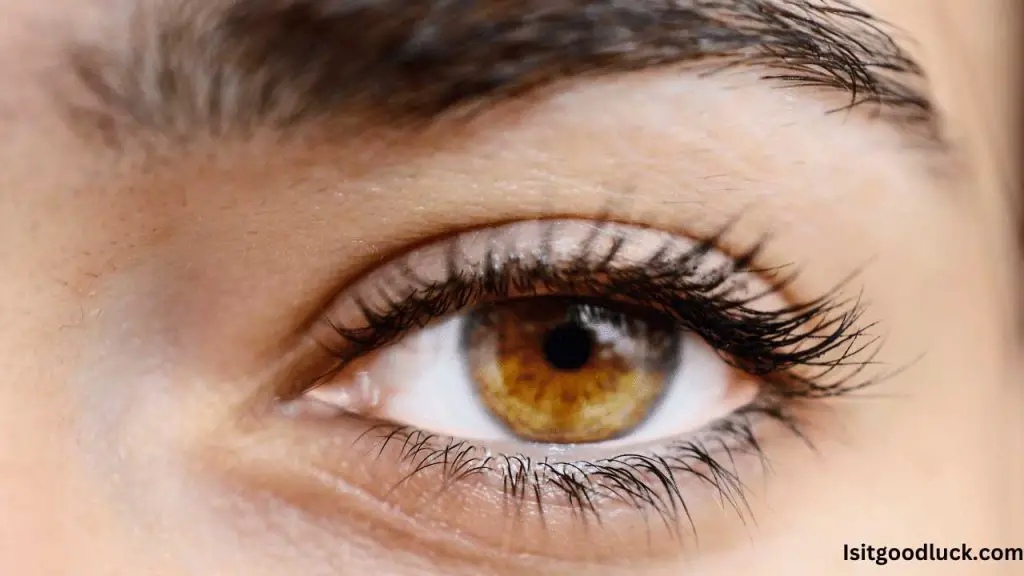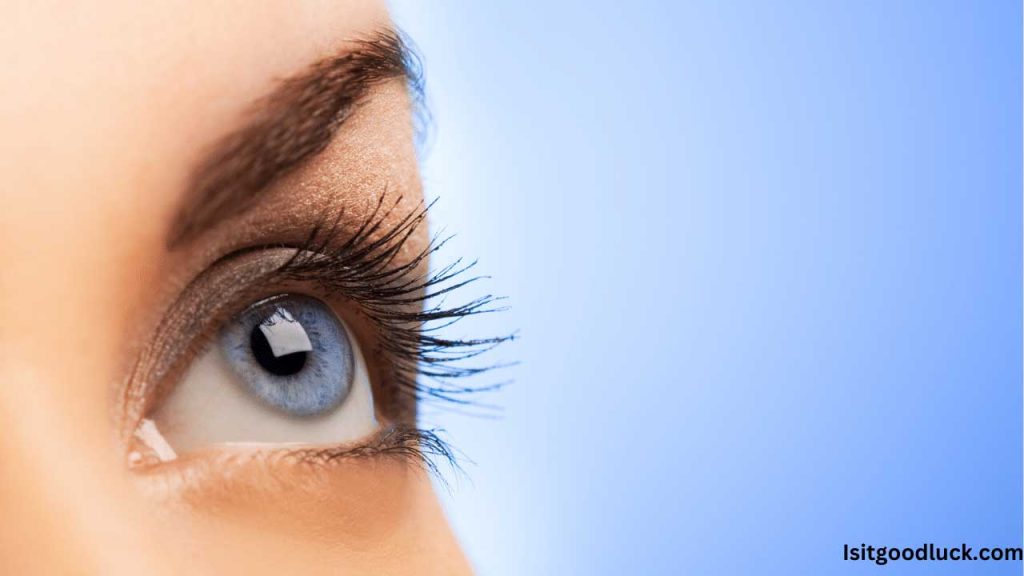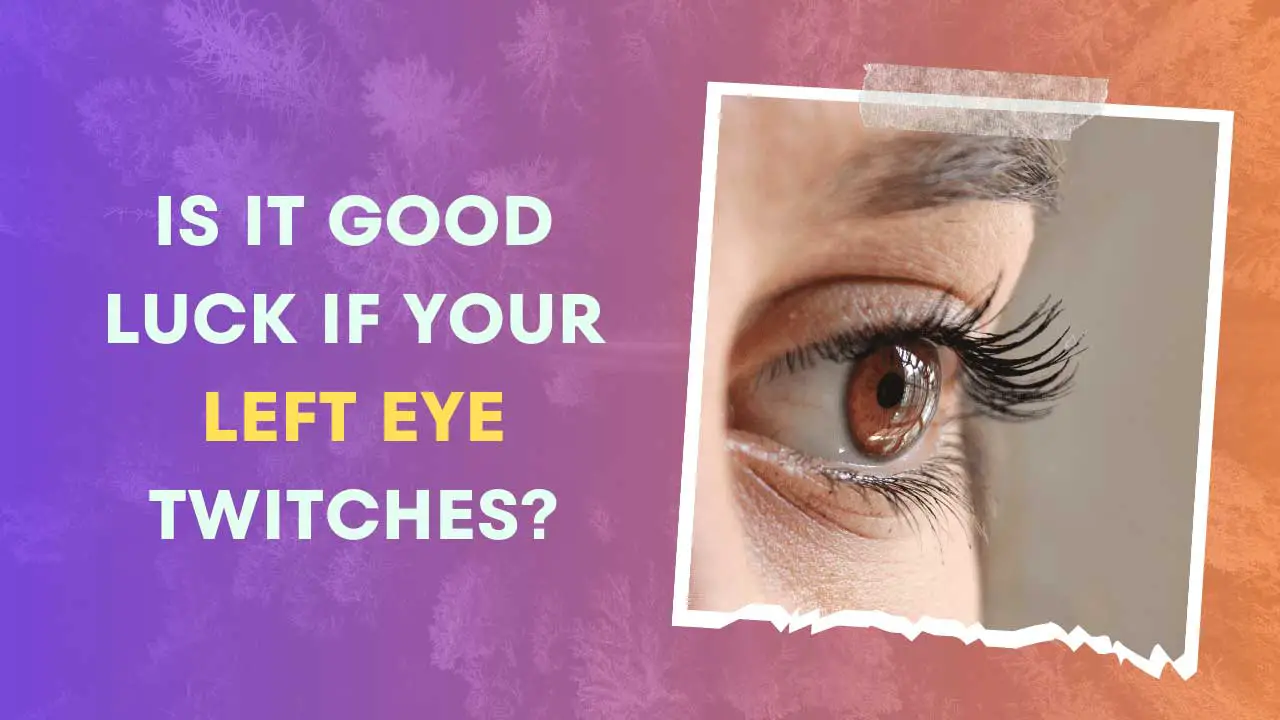Eye twitching, also known as myokymia, is a phenomenon experienced by people worldwide. While it is generally considered a benign condition, eye twitching can attract much attention due to the superstitions surrounding it. Is it really good luck if your left eye twitches?
This article delves into these cultural beliefs, exploring their origins, the medical causes of eye twitching, and potential remedies.
Contents [hide]
- 1 Eye Twitching Superstitions Across Different Cultures:
- 2 3. Caribbean:
- 3 Medical Causes of Eye Twitching:
- 4 Remedies for Eye Twitching:
- 5 How to Prevent Eye Twitching:
- 6 The Historical Context of Eye-Twitching Superstitions:
- 7 Is it Good Luck If Your Left Eye Twitches?
- 8 Conclusion:
- 9 FAQs
- 9.1 Q: Does the superstition of a twitching left eye indicating good luck or bad luck apply universally?
- 9.2 Q: Is there any scientific evidence that supports the superstition of eye twitching predicting future events?
- 9.3 Q: My left eye has been twitching frequently. Should I be worried about this?
- 9.4 Q: I don’t believe in superstitions. Is there any practical way to stop my eye from twitching?
- 9.5 Q: How long does eye twitching usually last?
Eye Twitching Superstitions Across Different Cultures:
Eye twitching has been the subject of various superstitions globally. The interpretation of these involuntary eye movements often depends on the twitching eye, the individual’s gender, and the cultural context.
1. China:
In China, for instance, the superstitions around eye twitching are derived from linguistics. The Mandarin Chinese term for “left” sounds similar to the word “loss,” contributing to the belief that a twitching left eye portends financial loss. Conversely, a twitching right eye is seen as a good omen, often associated with incoming fortune.
2. India:
In India, the interpretation of eye twitching is gender-specific. If a man’s left eye twitches, it is often interpreted as a harbinger of bad luck. However, a twitching left eye is seen as a sign of good luck for a woman.
3. Caribbean:
Moving to the Caribbean, the superstitions around eye twitching are tied to social discourse. A twitching left eye implies someone is speaking ill of you, while a twitching right eye suggests that people are saying good things about you.
Also read: Is It Good Luck If Your Left Palm Itches?

Medical Causes of Eye Twitching:
Beyond superstitions, eye twitching is a physiological response often linked to various factors, including stress, fatigue, excessive intake of caffeine or alcohol, dehydration, tobacco use, allergies, and certain medications.
Stress, a common instigator of eye twitching, triggers the body’s fight-or-flight response, which may cause facial muscles, including those around the eyes, to twitch.
Fatigue, dehydration, and excessive consumption of caffeine or alcohol can also affect muscle function, leading to twitching.
Remedies for Eye Twitching:
Eye twitching usually resolves on its own without the need for medical intervention. However, if the condition persists or is bothersome, several remedies can help alleviate the symptoms:
- Adequate Sleep: Fatigue is a common cause of eye twitching, so ensuring you get sufficient rest can help reduce the incidence.
- Stress Management: Techniques such as meditation, yoga, and other relaxation exercises can help manage stress levels, reducing eye twitching.
- Limiting Stimulants: Reducing the consumption of caffeine and alcohol can help manage eye twitching.
- Hydration: Staying well-hydrated helps maintain overall bodily functions, including muscle function.
- Warm Compress: Applying a warm compress to the eye can help relax the surrounding muscles and reduce twitching.
- Medications: Over-the-counter medications like antihistamines or muscle relaxants can help, particularly if the twitching is related to allergies or muscular issues.
How to Prevent Eye Twitching:
Prevention strategies for eye twitching align closely with its treatments and include maintaining a healthy lifestyle.
This involves getting adequate sleep, managing stress, limiting consumption of caffeine and alcohol, staying well-hydrated, maintaining a balanced diet, and exercising regularly.
The Historical Context of Eye-Twitching Superstitions:
Superstitions related to eye twitching have existed for centuries, dating back to a Chinese medical text from the 1st century AD. This text described a twitching left eye as indicative of bad luck and a twitching right eye as a symbol of good luck.
Over time, these superstitions evolved and spread to other cultures. During the Middle Ages, a twitching left eye was linked to witchcraft, while the 18th century saw the phenomenon associated with imminent death.

Is it Good Luck If Your Left Eye Twitches?
Superstitions reflect various aspects of cultural beliefs, encapsulating views on the body, mind, and the concept of luck.
For instance, in cultures that view the left eye as the “heart eye” and the right eye as the “mind eye,” a twitching left eye symbolizes emotional turmoil, while a twitching right eye represents an active mind.
Similarly, in cultures that equate good luck with divine favor and bad luck with divine punishment, a twitching left eye — often associated with bad luck — can be perceived as a warning of divine retribution.
Conclusion:
The fascination surrounding a twitching left eye extends from deep-rooted superstitions to tangible medical explanations.
While cultural beliefs assign varying degrees of fortune or misfortune to this phenomenon, it’s crucial to understand that persistent eye twitching could indicate underlying health issues.
Although commonly caused by factors like stress, fatigue, and lifestyle habits, eye twitching should not be ignored if it persists or is associated with other symptoms, as it could be a sign of more serious conditions.
However, with adequate rest, lifestyle modifications, and stress management, you can usually keep your eye twitching under control.
Also read other articles regarding itching good luck.
FAQs
Q: Does the superstition of a twitching left eye indicating good luck or bad luck apply universally?
A: No, interpretations of a twitching left eye can vary significantly from one culture to another. For instance, in China, a twitching left eye is often considered a sign of impending misfortune, while in Indian culture, it might be considered lucky for women. Therefore, it’s important to understand that these superstitions are deeply rooted in specific cultural contexts and are not universally applicable.
Q: Is there any scientific evidence that supports the superstition of eye twitching predicting future events?
A: No scientific evidence links eye twitching to predictive future events, either positive or negative. Eye twitching is usually a result of muscle spasms caused by factors such as stress, fatigue, excessive caffeine, or certain medical conditions. It is not connected with predicting specific events in a person’s life.
Q: My left eye has been twitching frequently. Should I be worried about this?
A: While occasional eye twitching is normal and usually harmless, frequent twitching may indicate an underlying issue. If you’re experiencing persistent eye twitching, it’s recommended to consult with a healthcare professional. The twitching could indicate neurological conditions such as blepharospasm or facial nerve disorders.
Q: I don’t believe in superstitions. Is there any practical way to stop my eye from twitching?
A: There are practical ways to stop your eye from twitching. If your eye twitching is caused by lifestyle factors, making changes such as getting enough sleep, reducing your intake of caffeine and alcohol, staying hydrated, and managing stress can help. If your eye twitching continues despite these lifestyle changes, you should consult a healthcare professional for further advice.
Q: How long does eye twitching usually last?
A: Eye-twitching episodes are typically brief, often lasting just a few minutes. However, in some cases, eye twitching can come and go over a few days. If your eye continues to twitch regularly over an extended period or is causing you concern, it would be wise to consult a healthcare professional to rule out any potential underlying medical conditions.





